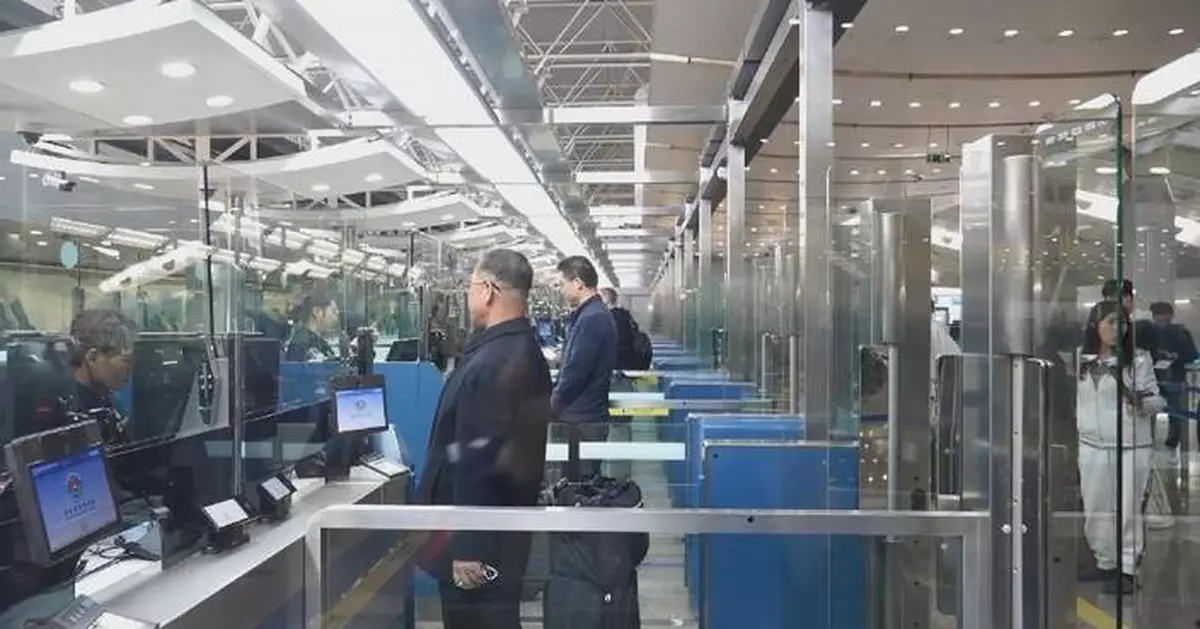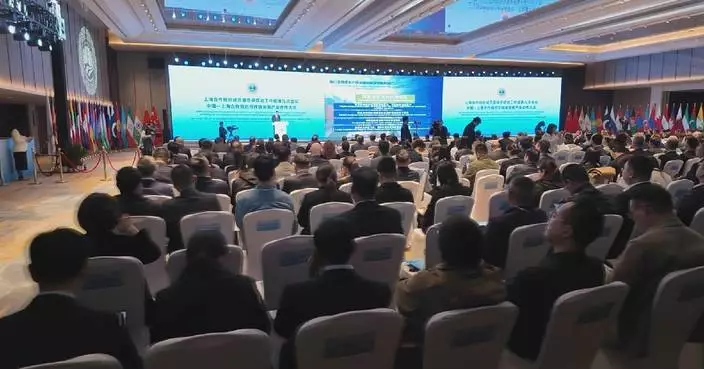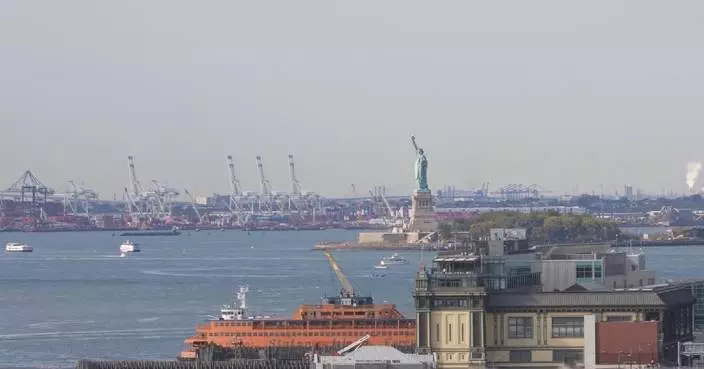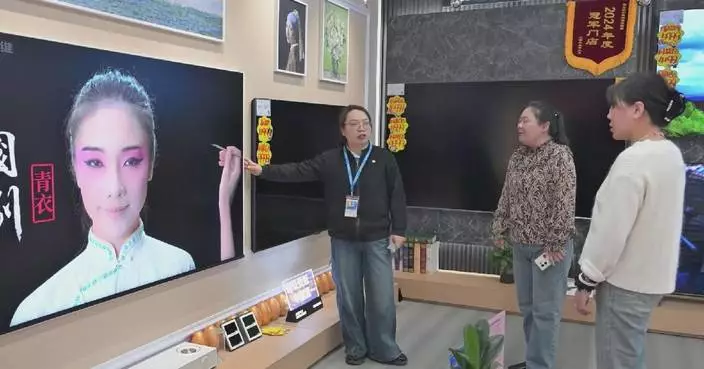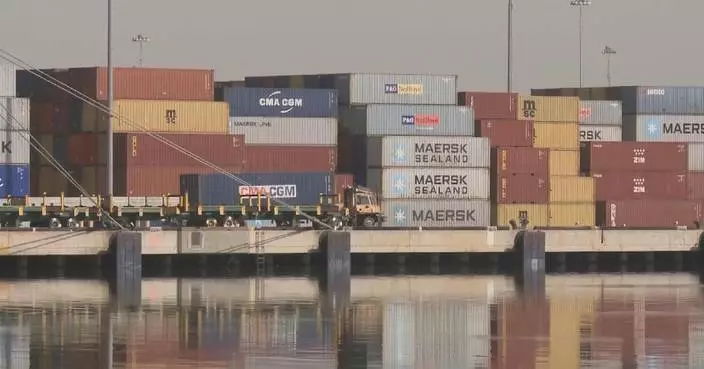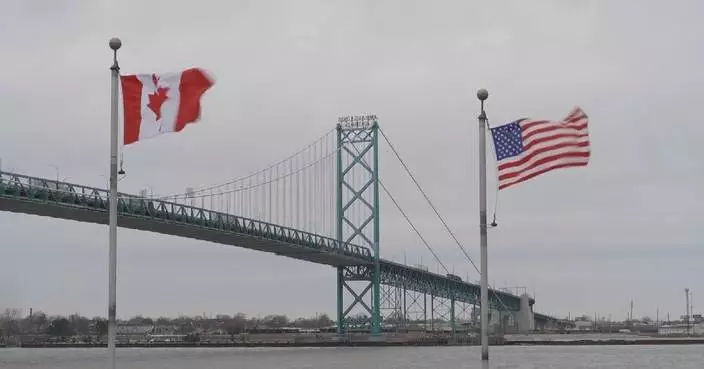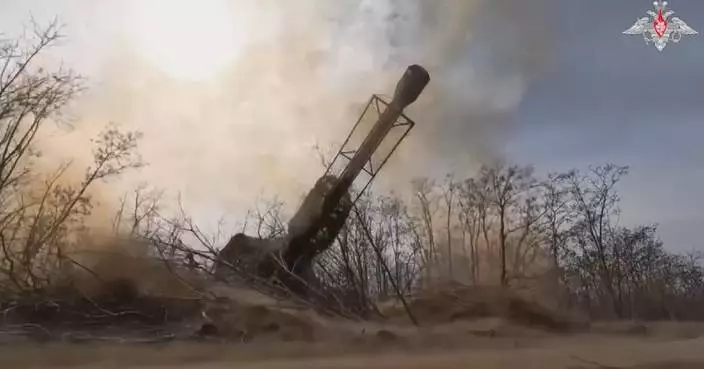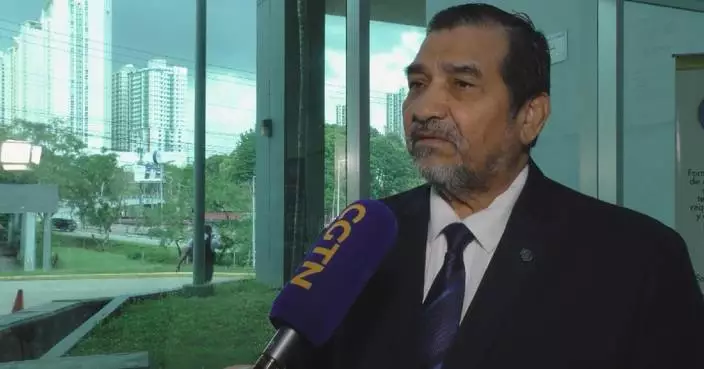Beijing has experienced a significant rise in both inbound and outbound travelers since the three-day Qingming Festival holiday began on Friday, prompting enhanced measures to ensure smooth border crossings.
Qingming Festival is a traditional Chinese holiday that falls on the 15th day after the Spring Equinox. Often seen as a time to enjoy the greenery of springtime and to visit the graves of ancestors, the holiday has also become a busy period for cultural and tourism activities in China. On Friday, Beijing recorded over 53,000 border crossings, marking a 32-percent increase year on year. Among them, over 9,000 entries were made by foreign nationals, a 51-percent rise year on year.
From Friday to Sunday, Beijing's entry and exit volume is expected to reach 160,000, according to the Beijing General Station of Exit and Entry Frontier Inspection, which has implemented multiple measures aimed at improving the efficiency and experience of travelers in order to handle the surge. These include streamlining temporary entry permit processes, expanding inspection lanes and waiting areas, encouraging the use of electronic boarding passes, and piloting self-service machines for printing foreigner entry cards.
"We've optimized the process for issuing temporary entry permits at both Beijing Capital International Airport and Beijing Daxing International Airport. We've added dedicated channels where travelers can receive permits and complete immigration procedures in the same location," said Liu Yan, deputy director of the border inspection division at the Beijing General Station of Exit and Entry Frontier Inspection. The spike in cross-border tourism is also linked to the implementation of visa exemption policies. As of March 31, Beijing had processed 584,000 foreign entries this year, with 18,000 travelers benefiting from the new policy of 240-hour visa-free transit, a 13.8-percent increase year on year. Most foreign visitors came for tourism, business, or family visits.
"This is the first time for us to come here to China, and we're very excited to be here," said a tourist from Mexico.
To welcome international visitors, Beijing is enhancing its tourism infrastructure.
"Beijing is working to become the top destination for inbound tourism. We've launched one-stop tourism service centers at Beijing Capital International Airport and Beijing Daxing International Airport and introduced the country's first integrated bank and SIM card service products. We're also building a barrier-free payment demonstration zone along the central axis of Beijing," said Zheng Fang, deputy director of the Beijing Municipal Bureau of Culture and Tourism.
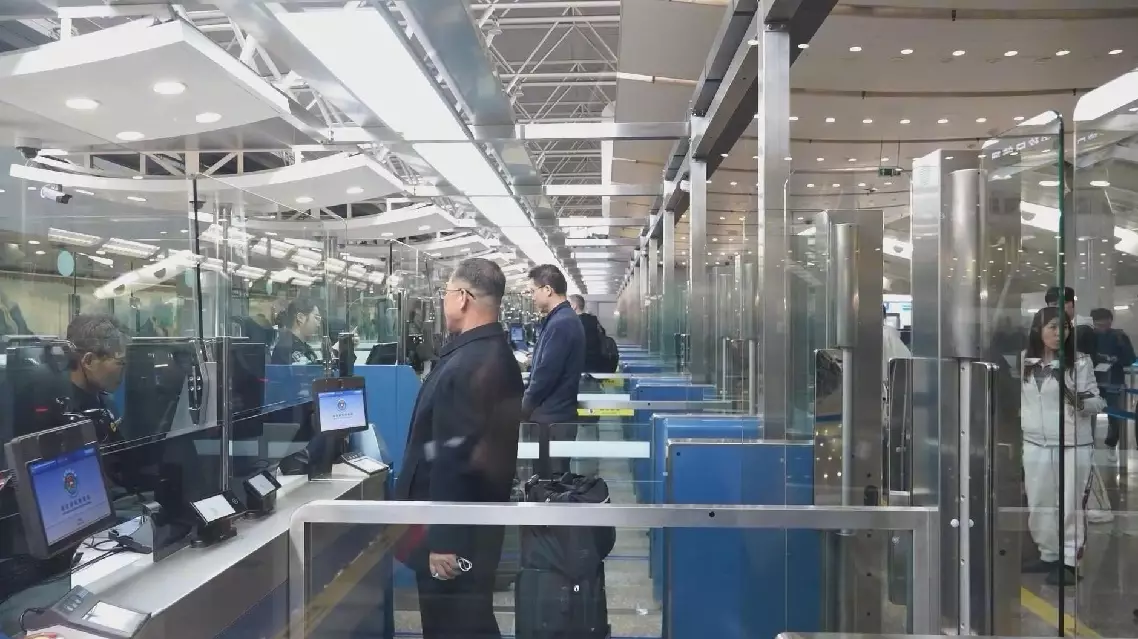
Beijing sees surging cross-border travels during Qingming Festival
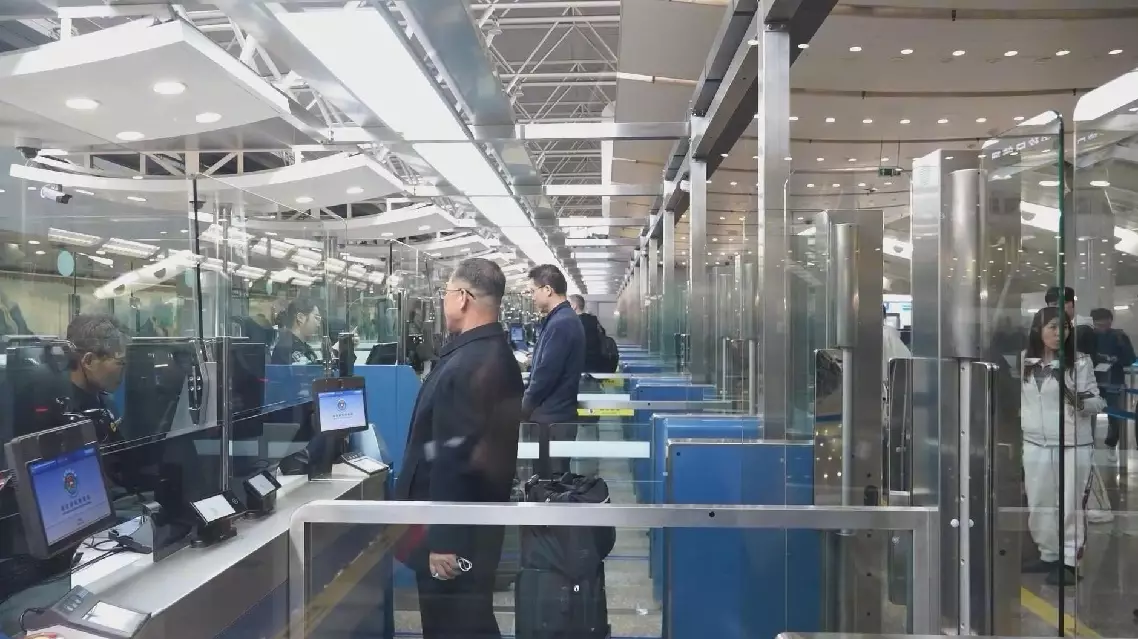
Beijing sees surging cross-border travels during Qingming Festival
As the uncertainty surrounding the Trump administration's tariff policies fuels inflationary fears in the United States, a number of consumers have resorted to panic buying amid growing concerns that costs could shoot up.
With price hikes expected on goods such as automobiles, beauty products, and even on everyday food items, many residents say they have been rushing out to stock up before prices climb even further.
In recent street interviews with the China Global Television Network (CGTN), New York residents shared how the impact of the ongoing tariff war is affecting their daily lives.
"Actually, I already have. I've already started stocking up. My mother has a whole stockpile, and she's panicking. But I told her we're going to be okay, as we live in New York City," said Amelia Guilford, a retail worker who was visiting her mother in the city.
With many anticipating a rise in inflation, many Americans are concerned about the long-term financial impact, and say they are now being more prudent with their money.
"I think we have to [spend more carefully]. Because otherwise you're going to be in real trouble economically or in debt, because if you spend more than what you get, that's going to be a lot of trouble," said Jose Pena, a janitor.
The tariffs, which directly affect the price of imported goods, have led to predictions of significant price increases, particularly on goods coming from China, which has been the biggest target of the tariffs.
"[Products] from China are going to be more expensive. I cannot exactly name what kind of products one by one, but every one that comes from China is going to be more expensive, without a doubt," said Pena.
Public frustration is evident, with some questioning the logic behind U.S. President Donald Trump's risky and unpredictable pursuit of tariffs on other countries, as the debate over the long-term consequences of the policy intensifies.
"I think he's just making enemies, and I trust him not. And I think he's making a mess of everything. I think it's all going to come around and flip back. The changes he's doing are completely unsustainable," said Lois Adams, a nurse, as she expressed her disapproval of Trump's approach.
Ordinary Americans are facing up to the harsh reality of rising prices and remain anxious about the future economic impact of the continuing trade war.
Jerome Wilkins, a security worker, voiced concerns about the broader societal implications of the tariffs, warning it will again be the poorest people who suffer the most.
"I think that the tariffs are horrible. I think that it's like privatizing America, and instead of America being a country for the people, it's a corporation for the rich. And it's just for them to get richer, while the poor get poorer. And that's basically how I feel," said Wilkins.
Meanwhile, the Chinese government announced it would raise tariffs on all imported U.S. goods from 34 percent to 84 percent, effective Wednesday, in response to the U.S. decision to escalate its "reciprocal tariffs" on Chinese products, further adding to the economic strain.
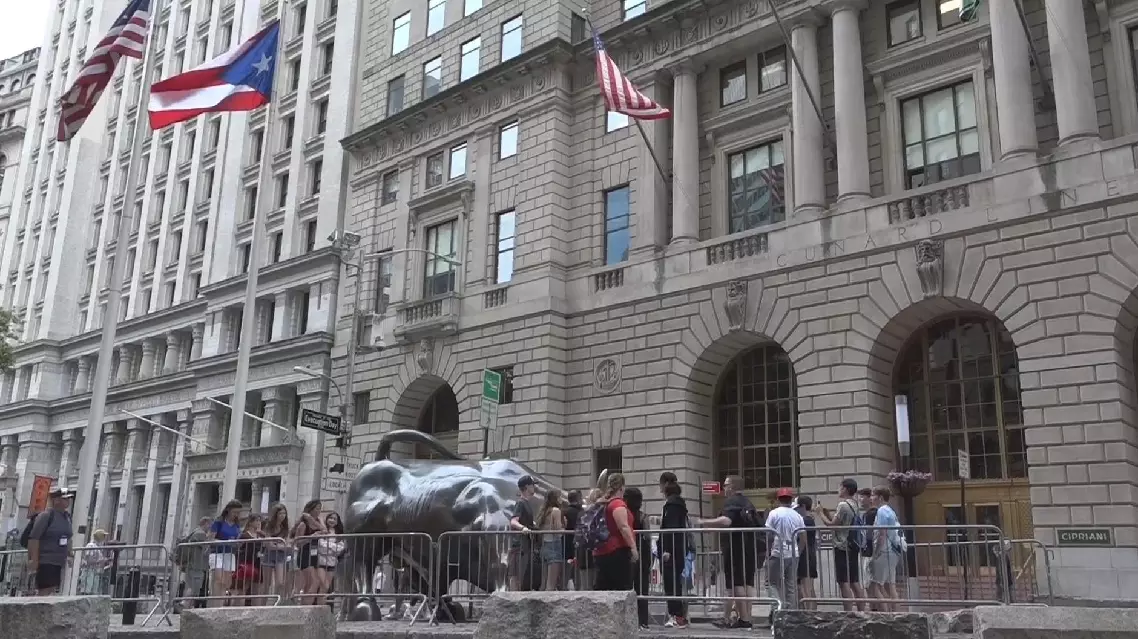
Tariff war triggers panic buying in US, raising public concerns over rising costs




